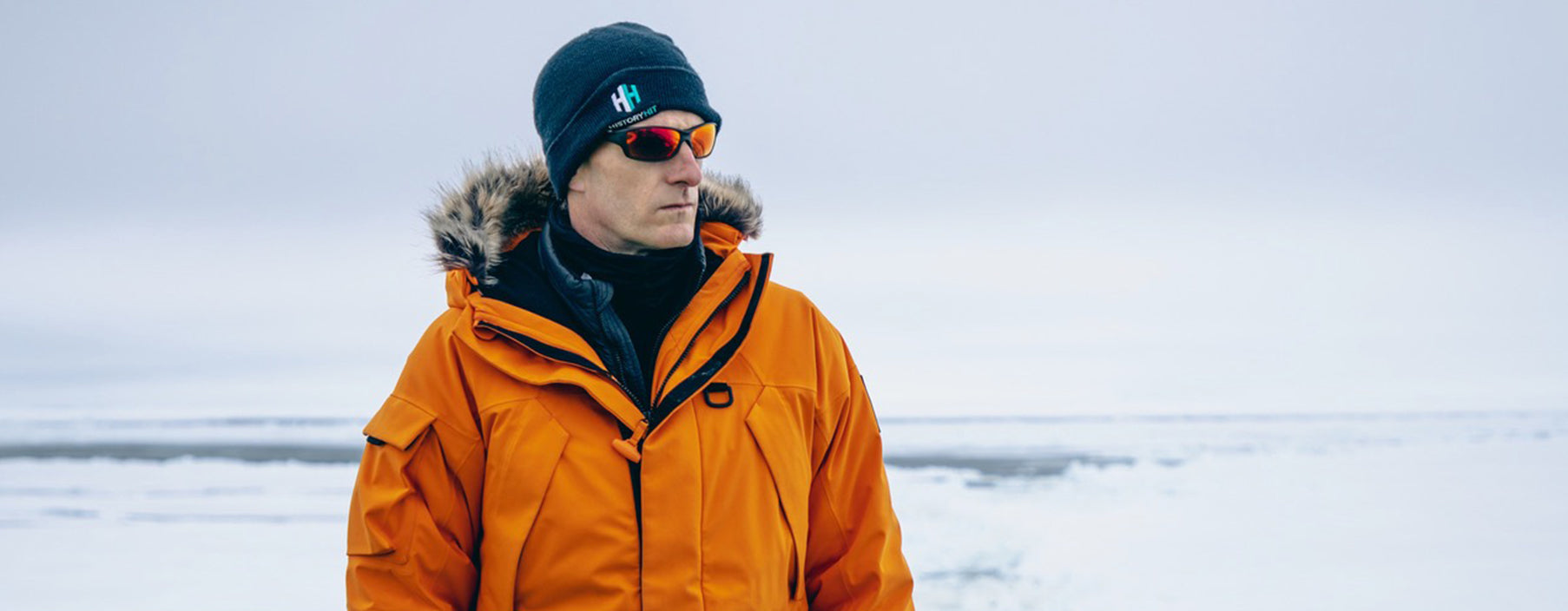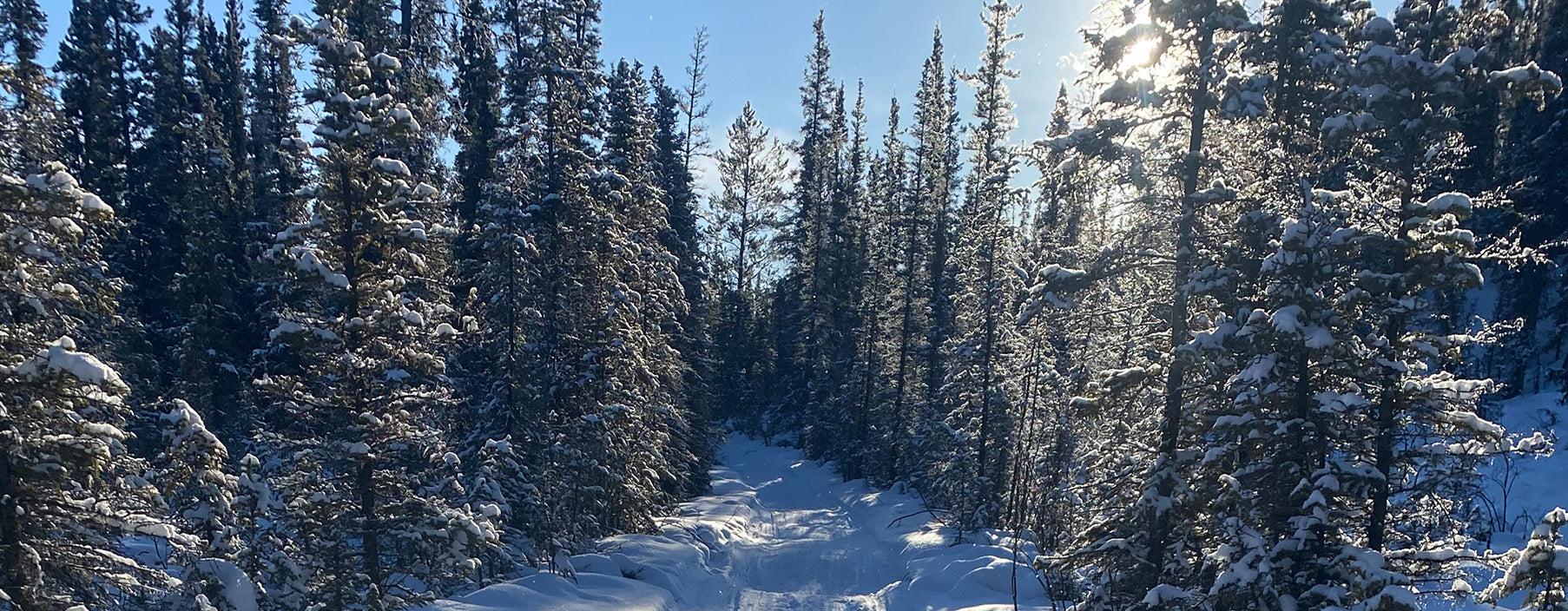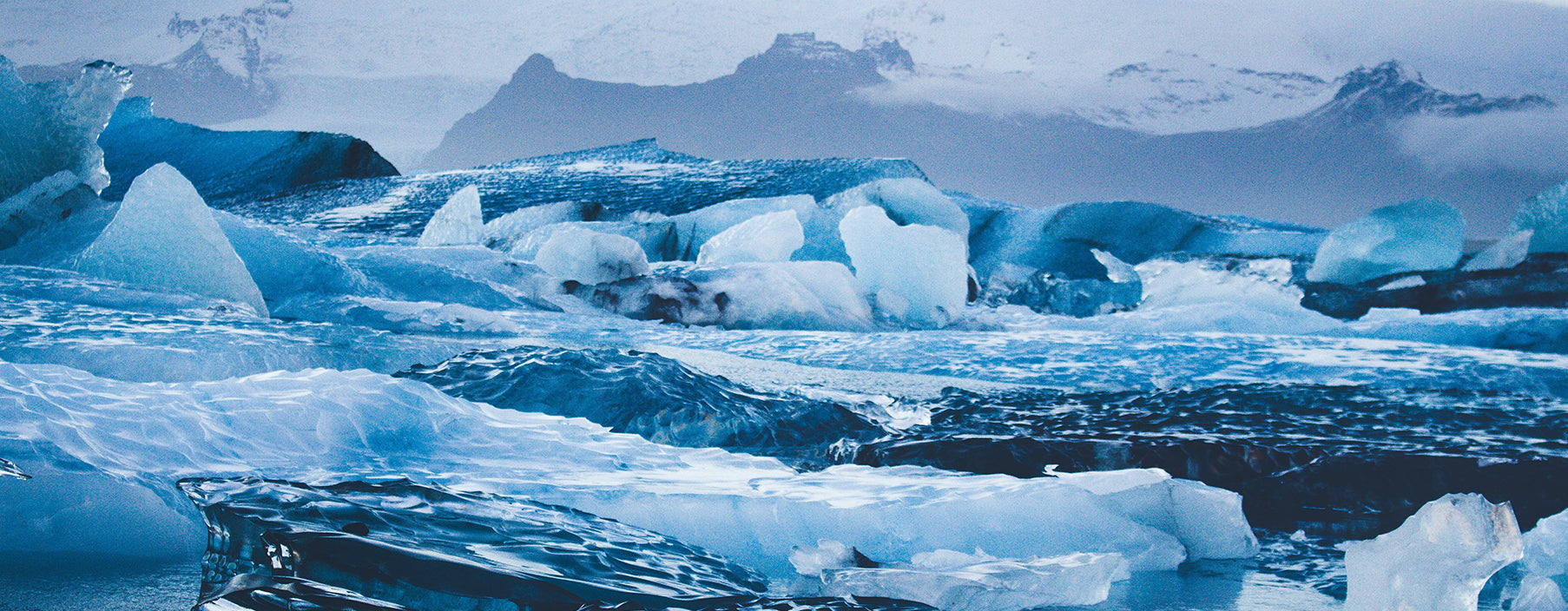
SHACKLETON MEDAL // MEET DAN SNOW
Historian Dan Snow has a lifelong fascination with Ernest Shackleton which makes him aptly placed to take up a position on the judging panel for the 2023 Shackleton Medal for the Protection of the Polar Regions. Here he talks to Rachel Halliburton about changing ideas of heroism, going on the historic Endurance22 expedition, and about the strange power of dominoes as a survival tool.

On Thursday 27 January, 2022, historian Dan Snow appeared at the BFI London IMAX to talk about participating in the Endurance22 expedition to rediscover Ernest Shackleton’s ship. Since he was – like all the crew – in isolation, so he wouldn’t catch COVID before the expedition left, the audience was greeted not by the man himself but his almost 20m-high image on the screen which seemed strangely appropriate, given the gargantuan task ahead.
Just ten years beforehand, it would have been impossible to imagine any crew having the technology to locate and film the Endurance. When Frank Hurley’s historic film South played on the IMAX’s vast screen following Snow’s introduction, people could witness – from images taken in 1915 – the ship’s disappearance on a scale that conveyed its elemental horror. When – as the caption declared – ‘The floes closed upon her as a giant would crush a match-box’, the sense was of a vessel permanently consigned to oblivion.
DARKEST BEFORE DAWN

Photograph Credit: Falklands Maritime Heritage Trust
Yet on March 5 2022, images from underwater drones would provide an extraordinary postscript to Hurley’s film. A little over a month after Snow set out on the expedition – organised and funded by Falklands Maritime Heritage Trust and led by Mensun Bound, John Shears and Nico Vincent – Shackleton’s ship was discovered. Shortly beforehand, Snow confides, there was a point when he was convinced the expedition had failed. ‘I was like a bear with a sore head – there was nothing practical I could do. I would go for long walks around the main deck and then throw myself onto my bed and read. It was a real darkest before dawn moment.’
‘We became strangely obsessed with dominoes.’
To encounter Snow is to be instantly aware of his energy; when we meet, he seems more at ease when tigerishly prowling the room than when he’s sitting down. It’s easy to see how the same wiry dynamism that makes his broadcasts so sharply compelling would make it tough to be confined on board a ship. When we meet in Shoreditch he declares that the crew took inspiration from Shackleton on how to pass time; ‘we played a lot of cards. We also played a Monopoly card game and became strangely obsessed with dominoes. We made sure that we didn’t just retreat to our devices and watch movies.’
SHIFTING IDEAS OF HEROISM
Snow’s style of historical storytelling is almost electrically charged by visits to locations where major events have taken place. Take, for instance, his Battle of the Somme documentary, for which he tested the weighty military kit and watched historical footage of the soldiers as it was projected directly onto the landscape. Normally to trace a historical figure’s footsteps leads to greater understanding, but Snow confesses that after the expedition to the Weddell Sea, ‘I understand what happened to Shackleton even less than I did before I set out. I sail a lot but looking at the sheer height of the waves combined with the temperatures and icy conditions, it’s almost impossible to process how he managed it.’
‘We look for heroes whose experiences speak to us’

Questions of heroism have changed substantially since Shackleton was wrestling with the elements. ‘We look for heroes whose experiences speak to us,’ says Snow. ‘Unlike many imperial era heroes, Shackleton won his battles against nature and despair, not in a campaign against indigenous peoples or French, Russian or German troops. The trajectory of his reputation is particularly interesting because he returned during the First World War and was keenly aware that it was a bit rich to talk about being a hero when so many were experiencing unimaginable horrors in the trenches. Yet these days more people relate to Shackleton’s experiences of battling extreme cold and trying to lead a team that’s lost its morale than relate to trench warfare.’
HISTORY AS SELF-HELP
He’s convinced that history, for some, is a powerful form of ‘self-help: when you see the odds that people have fought against, or the experiences they’ve survived it gives you a kind of strength. Even when [Shackleton] had doubts, he kept others going by portraying confidence. He was very flawed – hopeless with money and not great with organisation – but tremendously relatable. He was at his best when pushing limits; like him I think I’m happier in a challenging environment like the ice than I am in an office.’
ONE OF THE FEW THINGS WE’VE DONE RIGHT AS A SPECIES
Like so many who have travelled to Antarctica, he would return in a heartbeat. ‘It's the most amazing place,’ he declares, ‘People seek solitude, don't they in this very busy, overpopulated world, and there it is, with its vast deserted expanses, teeming with wildlife. Very, very special. Designating an entire continent for exploration and science. It’s one of the few things we've done right as a species.’
SHACKLETON MEDAL
Find out more about the 2023 Shackleton Medal for the Protection of the Polar Regions, the judging panel and the previous winner, Dr Heidi Sevestre HERE.
Nominate either yourself or the person that you believe should win the 2023 Shackleton Medal for the Protection of the Polar Regions HERE.
UPDATE: Nominations for the Shackleton Medal 2023 are now CLOSED.



